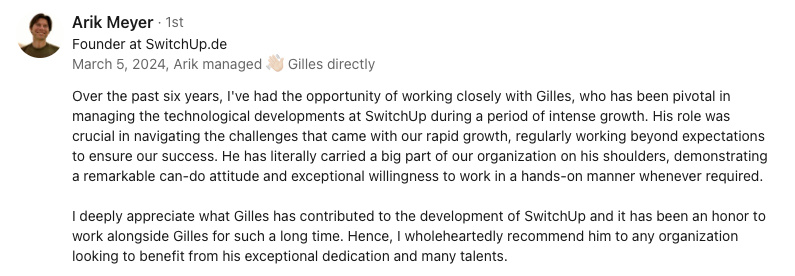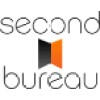Abstract:
The article emphasizes the critical role of authenticity in the success of startups, highlighting it as a strategic asset rather than merely a moral choice. Authenticity, characterized by transparency, trust, and alignment with core values, fosters a culture of openness, innovation, and resilience within startups. The article explores how European startups like Wise, Spotify, and BlaBlaCar have leveraged authenticity to enhance employee morale, brand identity, and customer loyalty, ultimately driving innovation and creativity. It underscores the importance of value alignment and authentic leadership, using examples such as Wise's transparency in fintech and Spotify's culture of "freedom and responsibility" to illustrate how authenticity can transform work environments and promote innovation. The piece provides practical strategies for cultivating authenticity, including regular feedback, open dialogues, and leadership modeling, while also presenting key performance indicators to measure the impact of cultural authenticity. Ultimately, authenticity is portrayed as essential for building cohesive teams and achieving sustainable growth, with real-world examples demonstrating its power in driving success and resilience in the competitive startup landscape.
In the busy world of startups, being real can seem rare. But staying genuine is key to making it in this fast-moving space. If you're trying to build a culture of trust and openness, you're among many. Aligning business with core values can uplift morale, strengthen brand identity, and spark creativity. This article explains why authenticity is more than just a good moral choice—it's a smart strategy. We'll look at how it helps create great work environments and sparks innovation. Plus, we'll share practical tips and examples to show how authenticity can transform startups.
Defining authenticity in culture
Examining authenticity in European startups highlights the importance of staying genuine in daily operations and decisions. This section explores how being authentic helps create a work environment that encourages innovation, trust, and resilience.
Understanding authenticity
At the core of authenticity in startups are transparency, trust, and sticking to core values. These create a place where communication is open, building trust among team members. When startups adopt these elements, they set the stage for success. During my time leading diverse teams in Berlin, I saw firsthand how crucial transparent communication is. It helps align team efforts with goals, ensuring everyone is on the same page.
This approach is vital in competitive markets where adaptability and resilience determine success. Unlike other values, authenticity lets startups face challenges with confidence. Historically, those prioritizing authenticity showed greater resilience, adapting quickly to changes. This boosts performance and creates a thriving work environment.
Authenticity isn't just a moral choice; it’s a strategic asset. It boosts performance and employee satisfaction by creating a space where teams feel valued. Benefits include:
- Better business performance
- Higher employee morale
- Stronger brand identity
- Greater customer loyalty
- More innovation and creativity
By understanding and using authentic practices, startups can unlock these benefits for ongoing success.
Importance of value alignment
Aligning daily operations with core values is crucial for staying authentic and avoiding dissonance. Like tuning an orchestra, when everything is in harmony, the result is beautiful. In a workplace, aligning operations with values ensures everyone is on the same page, promoting unity and a shared purpose. Leadership is key in keeping this harmony, setting the tone for authenticity across the team.
Leaders must model core values consistently. By doing so, they set standards and emphasize authenticity at every level. Actions often speak louder than words, and when leaders live the company's values, it inspires others. This creates an environment where employees can be themselves, supported by leadership.
Successful examples of value alignment can be seen in European startups. Wise in London has thrived by embracing transparency, resulting in high employee engagement. Spotify in Stockholm promotes a culture of freedom and responsibility, leading to high satisfaction and retention. These examples show the power of value alignment in building authentic, innovative startups.
The role of authenticity in innovation
European startups are realizing that an authentic culture drives innovation. By embracing authenticity, they create an environment where creativity and innovation thrive. Let's look at how authenticity boosts creativity and see examples of startups using this to innovate.
Catalyst for creativity
Authenticity in the workplace nurtures creativity, allowing it to grow into new ideas. By removing barriers like the fear of criticism, employees are encouraged to take risks and experiment. In such an environment, innovation becomes inevitable. The benefits are clear, leading to solutions that transform industries.
Spotify's culture of freedom and responsibility is a great example of how authenticity reduces fear and encourages creativity. This culture empowers employees to share bold ideas without fear of failure. Spotify shows how authentic workplaces enable teams to propose daring solutions, leading to major advancements.
Authenticity is also key in BlaBlaCar's success. By focusing on a community-centric approach, BlaBlaCar uses authenticity to drive innovation. This focus on trust and open communication has helped build a loyal community and sustain growth. BlaBlaCar's story highlights the role of authenticity in fueling innovation and achieving growth.
Real-world examples
Wise: Previously TransferWise, Wise shows how transparency can lead to innovation in fintech. By fostering openness, Wise has simplified international money transfers, benefiting users and the company. This transparency has been crucial to Wise's innovation, reshaping the fintech landscape.
Zalando: In Berlin, Zalando highlights the importance of diversity and inclusion in driving creativity. By focusing on amplifying diverse voices, Zalando fosters a culture where innovation thrives. This commitment attracts talent and keeps Zalando at the forefront of the fashion industry.
Spotify: Spotify's culture, marked by autonomy, shows how authenticity helps maintain an innovative edge. By giving employees freedom, Spotify nurtures creativity, leading to its agile business model. This ensures Spotify remains a leader in streaming, constantly introducing new features that captivate users.
These strategies show that authenticity is key to cultivating a culture ready for innovation.
Strategies for cultivating authenticity
Cultivating authenticity in startups is crucial for leaders aiming to create a genuine workplace. This section offers actionable steps to help leaders nurture authenticity in their teams.
Assessing current culture
Understanding a startup's culture is the first step to fostering authenticity. Tools like surveys and feedback help in this process. Regular assessments pinpoint gaps in authenticity, providing a path for improvement.
- Use employee surveys to measure value alignment.
- Encourage anonymous feedback with platforms like Culture Amp.
- Use tools like Officevibe to gauge employee sentiment.
Collecting feedback helps identify areas where authenticity may be lacking.
360-degree feedback enhances insights. This tool captures views from all levels, offering a comprehensive look at the startup's culture.
- Implement 360-degree feedback tools.
- Collect feedback from peers, subordinates, and superiors.
These steps provide a clearer picture of how well the culture aligns with core values and where to improve.
Observing team interactions offers more insights into whether the culture embodies its values. Evaluating consistency with core values helps assess cultural alignment.
- Observe team meetings to spot genuine communication.
- Evaluate decision-making processes to ensure they reflect values.
- Assess leadership actions to confirm they exemplify the culture.
This examination shows how well values manifest in daily operations, setting the stage for authentic practices.
Implementing authentic practices
Integrating authenticity across operations is key to fostering a genuine environment. Transparent communication and leadership modeling are essential.
Transparent communication and authentic leadership are the foundation for cultivating authenticity. Leaders should model core values across the organization.
- Leaders demonstrate values through actions and decisions.
- Use regular team briefings to keep communication open.
- Encourage candid discussions to reinforce an open culture.
This transparency empowers employees, setting a strong precedent for authenticity.
Embedding core values in recruitment and onboarding ensures a culturally aligned team from the start. This builds teams committed to authenticity.
- Embed core values in job descriptions and interviews.
- Ensure onboarding materials highlight values.
- Conduct orientation sessions on cultural expectations.
These steps ensure new hires embrace the company's culture from the start.
Workshops and focus groups reinforce cultural values and alignment. These collaborative sessions allow for open dialogues and deeper understanding.
- Host workshops to refine values.
- Encourage participation in focus groups for employee insights.
- Facilitate roundtable discussions for sharing value interpretations.
By fostering dialogue about values, startups enhance alignment and build authentic teams.
Building a cohesive team through shared values
In any organization, especially startups, a cohesive team is central to success. Shared values align individual goals with the mission, creating unity and purpose that drives performance and innovation.
Role of shared values
Shared values bind team members, fostering belonging and purpose. When everyone shares the same beliefs, individuals feel connected to the organization. This alignment reduces misunderstandings and conflicts, paving the way for collaboration. Reflecting on my time in Berlin, when everyone was aligned around shared values, it was easier to face challenges and reach goals. This unity boosts morale and enhances team efficiency.
A culture rooted in shared values reduces conflicts by providing common ground for decisions and interactions. When aligned, team members understand each other's perspectives and work together, not against each other. For example, startups like Wise prioritize transparency and open communication to minimize disputes, leading to a harmonious work environment. Such a culture nurtures cooperation and reduces friction.
The influence of shared values is seen in companies like Zalando and BlaBlaCar. At Zalando, diversity and inclusion create a vibrant environment where creativity attracts diverse talent and drives innovation. BlaBlaCar's community-centric approach strengthens its user base and collaboration within the team. These examples show how shared values improve performance and resilience.
Facilitating open dialogues
Creating open dialogue is key to embracing shared values within a team. Startups can use several approaches to facilitate these conversations:
- Host regular team meetings to discuss values.
- Use platforms like Slack or Teams to encourage discussions.
- Organize town halls for everyone to discuss company culture.
These methods ensure team members can voice thoughts and contribute to cultural growth.
Open dialogues about values clarify and reinforce the company's ethos and deepen team bonds. Regular discussions strengthen the shared framework and enhance understanding. Open communication helps align new team members with the culture, fostering a cohesive team.
Leaders play a crucial role by encouraging participation and feedback. To facilitate dialogue, leaders can:
- Encourage feedback by acknowledging contributions.
- Model openness in discussions, building trust.
- Provide anonymity options for hesitant speakers.
Using these strategies, leaders ensure open dialogues reinforce shared values and strengthen cultural cohesion essential for success.
Measuring the impact of cultural authenticity
Cultural authenticity in startups impacts performance and innovation. Let's see how to assess these impacts with specific metrics and tools.
Key performance indicators
High employee engagement scores show cultural authenticity. Engaged employees reflect a culture where transparency and values thrive. Tools like Culture Amp and Officevibe provide insights into these levels, showing how culture supports employees. Innovation metrics, like new ideas or project success, gauge how authenticity boosts creativity and outcomes.
Customer satisfaction and retention rates show external signs of authentic culture. When customers have consistent, authentic interactions, they remain loyal. Tools like NPS surveys reveal if the culture resonates with its audience. High scores show authenticity extends beyond internal circles, building strong client relationships and validating cultural efforts.
Feedback and adjustment
Sustaining authenticity needs ongoing feedback. Regular feedback through surveys and platforms is key to identifying and fixing cultural gaps. Open dialogues ensure authenticity evolves with team needs. External consultants offer unbiased insights into cultural practices, highlighting areas for improvement. Their expertise refines culture strategically, keeping it genuine and effective.
European startups like Spotify and Wise demonstrate successful feedback use. Spotify's continuous employee feedback maintains its empowering culture. Wise seeks customer feedback to refine services and culture. These companies show integrating feedback leads to robust, authentic culture supporting internal dynamics and resonating with audiences, driving growth and innovation.
Success stories of authenticity in European startups
Exploring how European startups integrated authenticity into their culture offers valuable lessons for others. These cases show how transparency, diversity, storytelling, and community enhance startup success and growth.
Lessons from the field
Wise: Shows how transparency builds trust and drives success. By fostering an open culture, Wise aligns with its mission for fair money transfers, boosting cohesion and customer trust, key to growth in fintech.
N26: Focuses on diversity and inclusion to attract and retain talent. By creating an inclusive environment, N26 ensures diverse voices are heard, leading to a dynamic team. Their initiatives include diverse hiring practices, inclusive training programs, and policies supporting work-life balance. These efforts make N26 a talent magnet, enhancing its edge in digital banking.
Innocent Drinks: Uses authentic storytelling to boost brand loyalty. By sharing genuine stories about products and values, they create a relatable brand image. This approach connects with consumers emotionally, strengthening loyalty. Innocent Drinks shows that genuine stories are powerful for brand engagement.
Emulating success
Spotify: Spotify's culture of freedom offers a model for fostering innovation. By giving employees autonomy, Spotify encourages creativity and risk-taking. Startups can emulate this by setting clear goals but allowing flexibility, encouraging experimentation without fear, and implementing forums for idea sharing. This keeps teams motivated and drives innovative solutions.
BlaBlaCar: BlaBlaCar's community model emphasizes trust for growth. By building strong community ties, BlaBlaCar ensures loyalty and expansion. Startups can replicate this by fostering communication, engaging feedback, and building shared purpose.
Glovo: Shows maintaining authenticity during crises is key for resilience. In tough times, Glovo stayed true to values with transparent communication. Startups can learn by keeping open communication, staying true to values under pressure, and using crises to reinforce commitments. By staying authentic, startups can weather challenges and emerge stronger, maintaining trust with employees and customers.
These insights show the strategic importance of authenticity in building successful enterprises.
Authenticity turns a startup from just functional to truly thriving. By fostering transparency, trust, and alignment with core values, startups unlock better performance, satisfaction, and loyalty. Examples like Wise, Spotify, and BlaBlaCar show authenticity as a catalyst for innovation and resilience. As you consider strategies like value alignment and open communication, remember that authenticity is cultivated through intentional practices and leadership.
You might be interested by these articles:
- Innovation at Scale: Balancing Speed and Stability in Tech Development
- Shining a Spotlight on Remote Workers: The Essentiality of Visibility
- Mental Health in Remote Work





